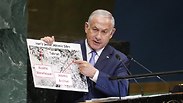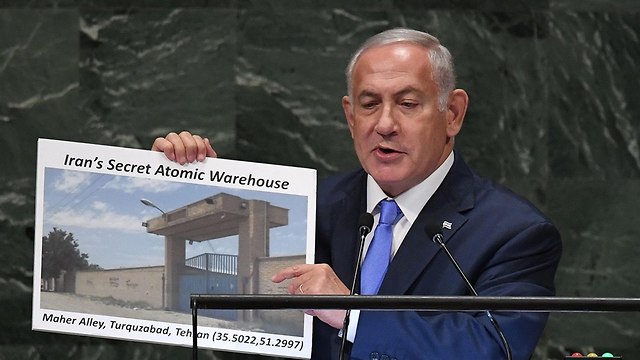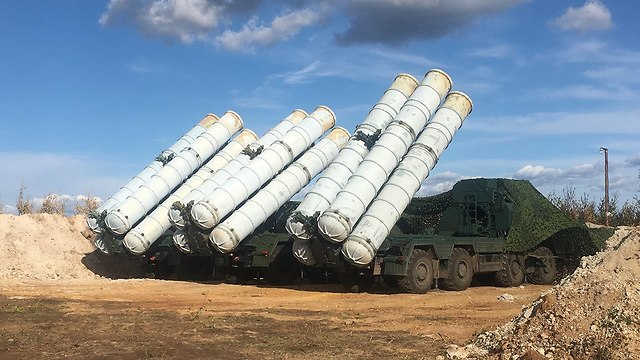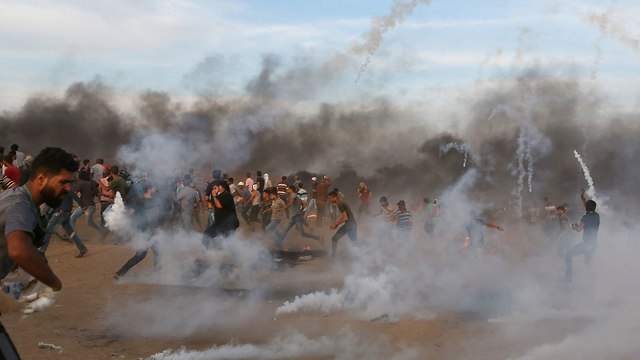
The critical security challenges Israel has to face
Op-ed: Israeli leadership faces critical tests in six different arenas. Iran, which tries to not only consolidate its presence in Syria and Lebanon but also to resume its nuclear activity. Russia, which supplied Syria not only S-300 but the more advanced S-400 as well. The PA, which might collapse under US pressure and the most volatile of all—the Gaza Strip.
The most important one is the Iranian nuclear program. Even if there are not going to be any drastic developments this year, it is still possible that the Iranians will withdraw from the nuclear agreement and fully resume its nuclear activities, following the United States decision to re-impose sanctions on the country.
Alongside the intelligence efforts to expose illegal Iranian activity, the diplomatic efforts aimed at Europe, and the justified criticism of the International Atomic Energy Agency’s ineffective supervision—Israel needs a strategic operational plan, which would be coordinated with the United States, and will prepare the groundwork for when Iran eventually renews its nuclear activities.
As for consolidation of Iranian military presence in Syria and Lebanon—despite the painful blow that Iran suffered last May, it is determined to continue building advanced military capabilities in these two countries that will threaten Israel. So far, Israel's determination to thwart Iran’s efforts has not been weakened, even though there are risks—as evidenced by the downing of the Russian spy plane by Syrian military that tried to intercept an IDF attack. Expanding these capabilities to Lebanon is something that Israel will not be able to put up with, and it increases the volatility along the northern border.
The S-300 anti-aircraft system is already in Syria in order to ensure "the security of the Russians in the country," according to Foreign Minister Sergey Lavrov.
Matter of fact, the far more sophisticated S-400 is already in Syria as well, but for now it is intended to only be used by the Russian military. However, if it is neglected and left at the disposal of the Syrian army, the operational freedom of the Israeli Air Force will be significantly limited and Israel will have to destroy it, which could potentially increase the tensions with Russia, and certainly with Syria.
The highest level of explosive potential is in the West Bank, and especially in the Gaza Strip. Palestinian President Mahmoud Abbas is even tougher on Hamas than Israel. He refuses to help implement interim solutions needed for ceasefire arrangement and adds to the ever growing economic pressure on the residents of the Gaza Strip and on the ruling terror group. It seems that Abbas is interested in sparking a military confrontation between Hamas and Israel, which would deliver a mortal blow to Hamas and strengthen the Palestinian Authority.
In light of the fact that the indirect negotiations between Israel and Hamas are at a dead-end, the terror group has escalated the border violence, as it promised it would, which lead to a rapid increase in the number of incendiary balloons launched from the strip into Israel and subsequently the number of dead and wounded among the Palestinians. We have returned to the starting point of last spring, when we were at the brink of a large scale operation.
There is no quiet in the West Bank as well. The frustration there—coupled with the pressure the Trump administration puts on the Palestinian Authority and Abbas’s political weakness—could lead to a popular or organized violent uprising. Israel's current policy there does nothing to reduce the potential for unnecessary escalation that can certainly be prevented.
In order to overcome these challenges, Israel needs, first and foremost, a broad coordination with the United States. In addition, renewed understandings should be reached with Russia when it comes to promoting common interests in the northern arena and maintaining a balance between thwarting threats, credible deterrence, and efforts to prevent escalation in the region.
This is the ultimate test for the country’s military and political leadership, which requires a joint effort—professional and based on trust. Considering that we are about enter an election year, the aforementioned security challenges are not the only ones the decision makers have to face, as the political and diplomatic challenges need to be dealt with as well, as evidenced by the recent clashes between the Cabinet ministers. This situation is not ideal for a forum where life and death decisions are made.













